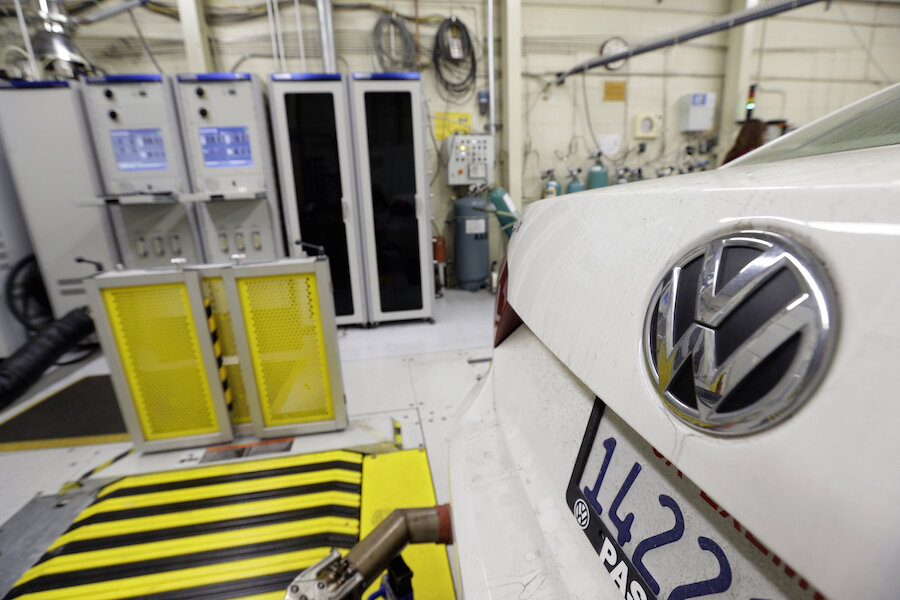Volkswagen diesel modifications begin testing in California. Can faulty cars be fixed?
Loading...
Under the settlement that got preliminary approval last week, Volkswagen must either buy back 466,000 2.0-liter TDI diesel cars or modify them to meet emissions standards.
But much skepticism persists among owners and in the media about whether VW can devise modifications that will satisfy regulators, and how long that process will take.
Ten months after the company's use of "defeat device" software was first revealed, it appears Volkswagen may be making some progress on that front.
The California Air Resources Board is preparing to test hardware and software modifications for all three varieties of VW and Audi 2.0-liter TDI models, according to Reuters.
Along with the federal Environmental Protection Agency (EPA), CARB must approve any modifications before they are implemented by VW; the two agencies will jointly evaluate the changes.
The company now appears to be taking the matter more seriously than before, CARB chair Mary Nichols told Reuters in a recent interview.
The VW Group brought in a new team to work on the modifications that seems to have better access to "the decision makers in Germany," Nichols said.
In January, CARB rejected a previous VW proposal for modifications to the 2.0-liter TDI models, saying it lacked sufficient detail.
Nichols said the modifications CARB plans to test encompass all three "generations" of 2.0-liter VW and Audi cars, spanning model years 2009 to 2015.
The "first-generation" cars—approximately 325,000 vehicles—do not have selective catalytic reduction systems (SCR, also known as urea injection), presenting a particular challenge in meeting emissions standards.
Many analysts believe these cars will not be fitted with SCR systems, which would require considerable additional hardware and plumbing as well as a great deal of software change.
Subsequent "generations" of TDI models may require less-extensive modifications to achieve compliance.
Owners open to the modification option should probably wait to learn how the modifications will affect their cars' performance and fuel economy before making a final decision, however.
To pass muster, Volkswagen must show that it can reduce emissions from its non-compliant diesels to within 80 to 90 percent of emissions standards, according to Reuters.
Full compliance will not be required because VW has agreed to pay $2.7 billion over three years to reduce diesel pollution from other sources, CARB's Nichols said.
MORE: California Rejects VW Diesel Modification Plan: 'Gaps,' 'Lacks Detail'
She also said Volkswagen has made no real progress in devising modifications for the 85,000 VW, Audi, and Porsche models equipped with different 3.0-liter V-6 diesel engines.
These models were not included in the settlement that covers the 2.0-liter TDI models.
Buyback offers for the 2.0-liter Volkswagen and Audi diesel models won't go out until the settlement receives final approval, which will come only after a hearing scheduled for October 18.







